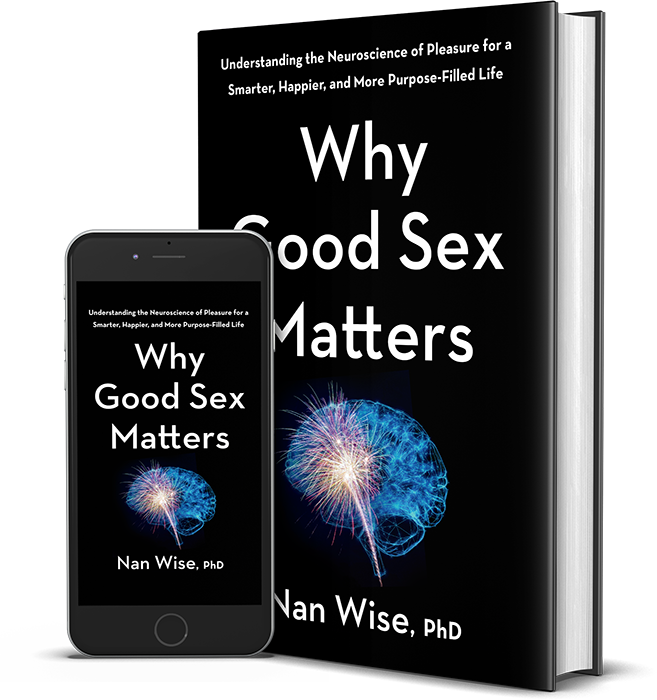How understanding the neuroscience of loss can promote emotional well-being.
KEY POINTS
- Grief is a natural process.
- Grief can’t be cured. It can, however, be felt, witnessed, experienced, and
ultimately tolerated. - The human brain is wired for both connection and heartbreak.
 Loss and grief are very much on my mind these days. My 97-year-old father died recently, leaving my 93-year-old mother to face the unbearable. After 74 years of marriage, she is now, for the first time, living without her person. Her grief comes in catastrophic waves, enveloping her mind and body in an aching pain for which there is no cure.
Loss and grief are very much on my mind these days. My 97-year-old father died recently, leaving my 93-year-old mother to face the unbearable. After 74 years of marriage, she is now, for the first time, living without her person. Her grief comes in catastrophic waves, enveloping her mind and body in an aching pain for which there is no cure.
Not all loss is as dramatic as the death of a long-term intimate partner, but loss looms large for anyone encountering a disruption or termination of a significant intimate relationship. And inevitably at some point in time, that will include all of us.
Experiencing my own grief has motivated me to share information on how loss, breakup, or the death of a parent or partner impacts our emotional systems. It is important that we cultivate our ability to tolerate painful feelings, the most intense of which, by far, is grief. In this blog, I will address the neuroscience of grief. First, a bit of background on how nature has wired our emotional brain.
It’s important to understand that we are wired for both connection and heartbreak
We know about this from research that has identified these “circuits,” The oldest part of our brain, which we share with all mammals and many other animals, literally has a circuit called the Panic/Grief/Sadness system that gets activated when we experience the loss of an important relationship. It is the source of the physical and emotional aftereffects of relationship breakups. It is profoundly and viscerally experienced as an emotional instinct in our body since our relationships and the resources they provide are essential for survival and the ability to thrive.
When activated, this system creates a sense of a painful, withdrawal-like syndrome, which we can feel as an ache in our hearts, accompanied by powerful feelings of sadness, despair, ruminations, regrets (click here for more about that), and diminished enthusiasm for life. Essentially, it is the substrate that, in some cases, can contribute to ongoing depression in people with a predisposition to mood disorders. It is important to remember that heartbreak and subsequent grief are not pathological but a normal part of being an emotional creature. It is just the dark side to our life-affirming ability to form loving, intimate connections.
This panic/grief/sadness system works in opposition to the wired-in system called CARE, which gives us the feel-good, well-being-inducing buoyancy of connection. The CARE system releases its own mood-elevating substances, such as opioids (our internally produced painkillers), dopamine (responsible for the buzz of sex, drugs, and rock-n-roll), oxytocin, and prolactin (neurohormones that contribute to our ability to attach and bond with others). Thus, when we experience relationship loss, the panic/grief/sadness system essentially decreases and blocks those feel-good brain chemicals such that we feel miserable.
Understanding what’s happening in our brains, minds, and bodies can be beneficial. This way, we can observe and see it for what it is: nature’s wiring.
By recognizing that relationship loss activates the panic/grief/sadness system, we can learn how to better tolerate the sensations in our bodies and thoughts in our minds and work with our built-in emotional systems to ride the waves of grief until we can move through and forward.
Tolerating painful emotions empowers our ability to feel pleasure
When we avoid pain, we risk losing our capacity to feel pleasure. We shut down emotionally as well as physically. Tolerating feelings (especially the hard ones) can be a pathway to ultimately enhancing our capacity for pleasure. Understanding the symbiotic relationship between pain and pleasure can help us tolerate and embrace all of our emotions. This is key to enhancing our capacity to experience pleasures in the moment and happiness over the long haul.
Palliative emotional care: Learning how to live with emotional pain
When my dad was transferred to hospice following a fall and subsequent brain bleed, which was not “survivable,” the doctors and nurses didn’t expect him to get better. Their goal was to give him comfort and support through the natural process of the body shutting down. I watched how carefully they observed him. They administered medications as needed to decrease pain, calm agitation, reduce respiratory secretions, and keep him as comfortable as possible. They followed his lead, making sure to adjust things as his symptoms spoke to them in the absence of his being able to communicate directly. The incredible attunement they demonstrated in his care and their framing of death as a natural process has given me deep insights as to how we can approach grief.
Tips for dealing with grief
Grief is a natural process.
It can’t be cured. It can, however, be felt, witnessed, experienced, and ultimately tolerated. As psychotherapists often say when coaching clients who are dealing with big feelings, there is no way out but through. Riding the waves of the feelings is key. Let yourself cry; let yourself feel whatever you feel. Let yourself be exactly as you are. This kind of radical acceptance is the bedrock of healing. Tolerating feelings (especially the hard ones) is essential.
Grief is experienced in the body.
Grief is stressful and can temporarily dysregulate the autonomic nervous system (hence, changes in sleep, appetite, and concentration). Breathwork can do wonders to calm the activation of the panic/grief/sadness system. I know this from personal experience: I learned how to calm my own panic attacks through simple yet powerful breathing tools.
Grief is an opportunity
Going through grief can be an opportunity to learn new wellness habits, such as the regular practice of yoga to help your body release emotions. Taking the opportunity to practice mindfulness, seek counseling, and cultivate physical exercise during the process of grieving can help us hone our ability to create more resilience and resourcefulness. If you have challenges finding such a practice, consider using a biofeedback device, which can help you reset your nervous system and decrease the adverse effects of stress.
Last but not least, remember that the willingness to grieve is good for you. It is something that unites us all.
References
Wise, N. (2020). Why good sex matters: Understanding the neuroscience of pleasure for a smarter, happier, and more purpose-filled life. Houghton Mifflin.
Davis, K. L., & Montag, C. (2019). Selected principles of Pankseppian affective neuroscience. Frontiers in neuroscience, 12, 1025.
Panksepp, J., & Biven, L. (2012). The Archeology of Mind. Neuroevolutionary Origins of Humans Emotions, WW. W.




